Ace your Chamberlain University nursing program with the NR 565 Final Exam: Accurate & Verified Actual Exam Questions with Detailed Answers for Guaranteed Pass – Already Graded A+ (Chamberlain University). This premium study resource is specifically designed for students enrolled in NR 565 (Advanced Pharmacology for the Family Nurse Practitioner) at Chamberlain University, providing a comprehensive collection of accurate and verified questions directly sourced from the final exam. Covering critical pharmacology topics such as drug classifications, mechanisms of action, pharmacokinetics, pharmacodynamics, therapeutic uses, adverse effects, drug interactions, prescribing principles, patient education, and legal/ethical considerations in pharmacology, this material ensures you’re fully prepared for the exam’s content and format. Each question is paired with detailed answers and in-depth rationales, helping you understand the reasoning behind correct responses and enhancing your ability to apply pharmacological knowledge in clinical practice. The NR 565 Final Exam typically includes multiple-choice, case-based, and application-style questions, and this resource mirrors that structure to provide an authentic practice experience. Already graded A+ by top Chamberlain students, this study guide guarantees a passing score by offering a structured, focused approach to mastering the material. Updated to align with Chamberlain University’s 2025 curriculum, this is the ultimate tool to help you succeed in NR 565 and advance toward your career as a family nurse practitioner.
Preview
1. What enzyme is obtained from the kidney?
A) Renin
B) Erythropoietin
C) Angiotensin
D) Aldosterone
Correct Answer: B) Erythropoietin
Rationale: Erythropoietin is a hormone produced by the kidneys that stimulates red blood cell
production in the bone marrow in response to low oxygen levels.
2. Angiotensin converting enzyme (ACE) is made where? What does it do?
A) It is made in the liver; it activates aldosterone
B) It is made in the kidneys; it converts angiotensin I to angiotensin II
C) It is made in the lungs; it activates angiotensin I in the kidneys
D) It is made in the heart; it reduces blood pressure
Correct Answer: C) It is made in the lungs; it activates angiotensin I in the kidneys
Rationale: ACE is produced in the lungs and converts angiotensin I to angiotensin II, which plays
a key role in blood pressure regulation by stimulating vasoconstriction and aldosterone
secretion.
3. What is most important for the filtration process in the kidneys?
A) Blood volume
B) Blood hydrostatic pressure
C) Glomerular filtration rate (GFR)
D) Kidney perfusion rate
Correct Answer: B) Blood hydrostatic pressure
Rationale: Blood hydrostatic pressure drives the filtration process in the kidneys, forcing water
and solutes from the glomerulus into the Bowman’s capsule for filtration.
4. What are the functions of the kidney?
A) Sodium and water removal, waste removal, hormone production
B) Blood pressure regulation, oxygen delivery, red blood cell production
C) Digestive enzyme production, acid-base balance, detoxification
D) Glucose storage, bile secretion, protein synthesis
Correct Answer: A) Sodium and water removal, waste removal, hormone production
Rationale: The kidneys regulate fluid balance, waste removal, and produce hormones like
erythropoietin, renin, and calcitriol, which are involved in blood pressure regulation and calcium
balance.
A) Renin
B) Erythropoietin
C) Angiotensin
D) Aldosterone
Correct Answer: B) Erythropoietin
Rationale: Erythropoietin is a hormone produced by the kidneys that stimulates red blood cell
production in the bone marrow in response to low oxygen levels.
2. Angiotensin converting enzyme (ACE) is made where? What does it do?
A) It is made in the liver; it activates aldosterone
B) It is made in the kidneys; it converts angiotensin I to angiotensin II
C) It is made in the lungs; it activates angiotensin I in the kidneys
D) It is made in the heart; it reduces blood pressure
Correct Answer: C) It is made in the lungs; it activates angiotensin I in the kidneys
Rationale: ACE is produced in the lungs and converts angiotensin I to angiotensin II, which plays
a key role in blood pressure regulation by stimulating vasoconstriction and aldosterone
secretion.
3. What is most important for the filtration process in the kidneys?
A) Blood volume
B) Blood hydrostatic pressure
C) Glomerular filtration rate (GFR)
D) Kidney perfusion rate
Correct Answer: B) Blood hydrostatic pressure
Rationale: Blood hydrostatic pressure drives the filtration process in the kidneys, forcing water
and solutes from the glomerulus into the Bowman’s capsule for filtration.
4. What are the functions of the kidney?
A) Sodium and water removal, waste removal, hormone production
B) Blood pressure regulation, oxygen delivery, red blood cell production
C) Digestive enzyme production, acid-base balance, detoxification
D) Glucose storage, bile secretion, protein synthesis
Correct Answer: A) Sodium and water removal, waste removal, hormone production
Rationale: The kidneys regulate fluid balance, waste removal, and produce hormones like
erythropoietin, renin, and calcitriol, which are involved in blood pressure regulation and calcium
balance.




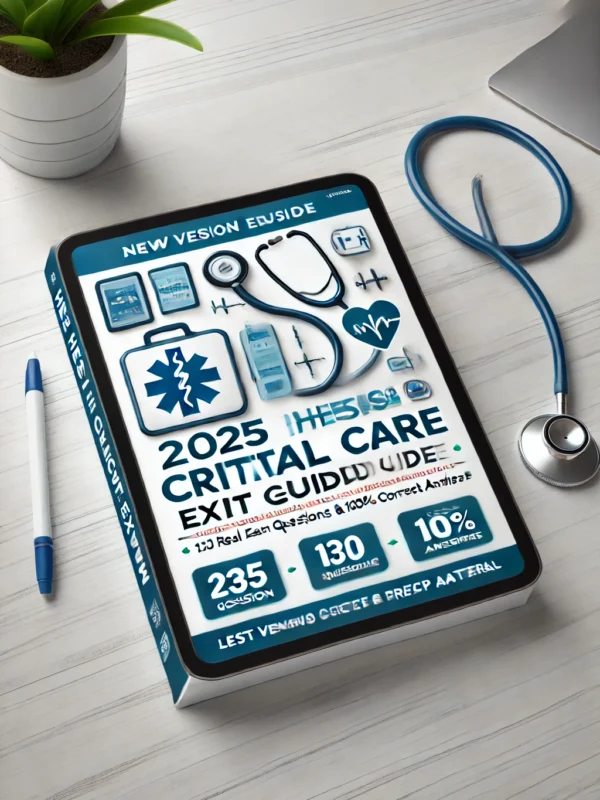
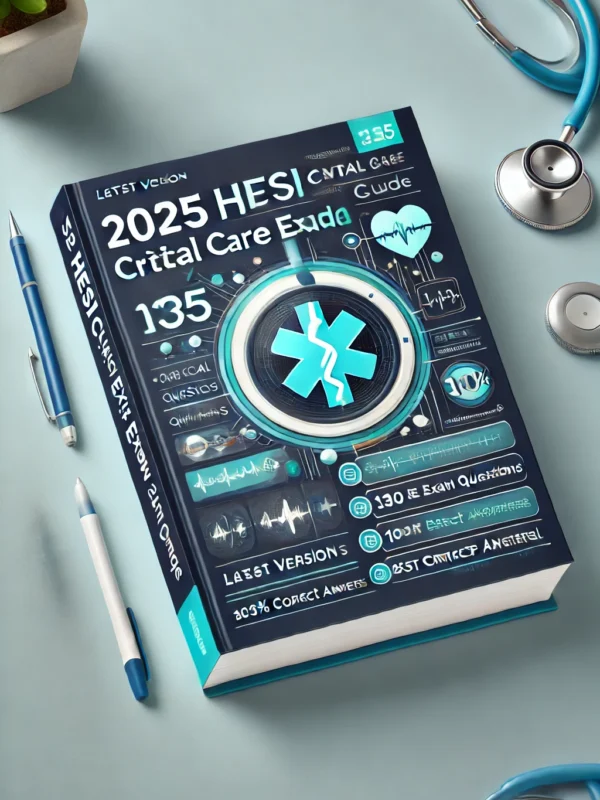
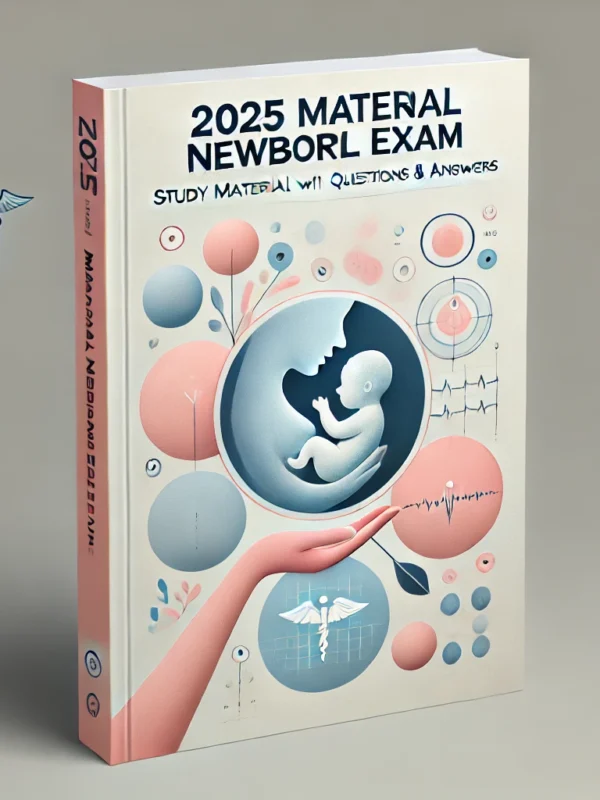
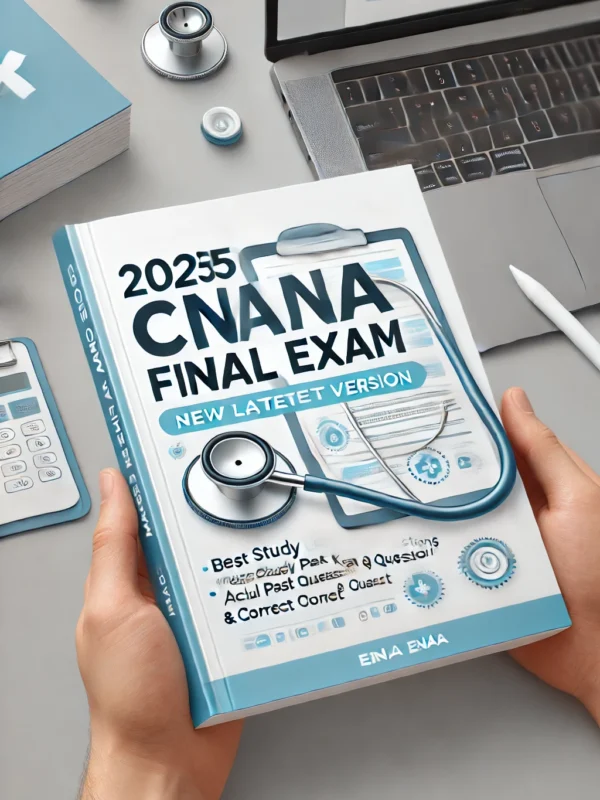
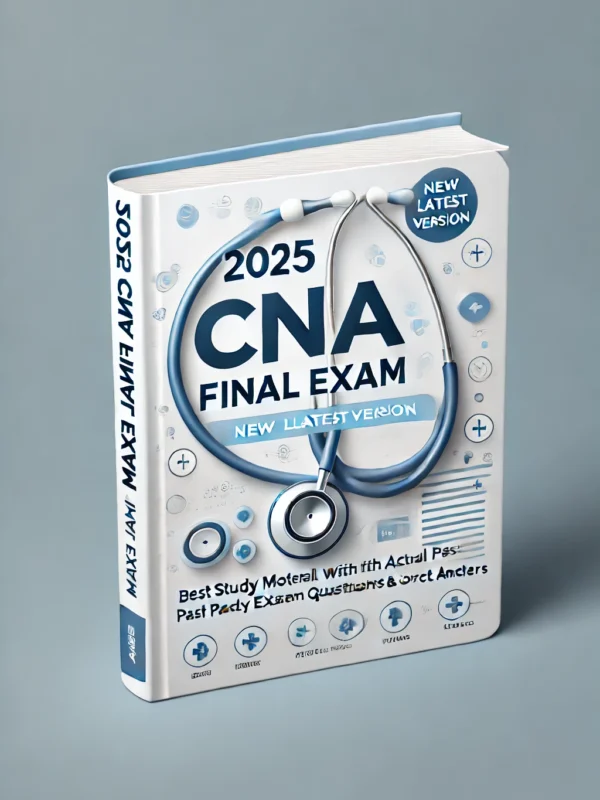

Reviews
There are no reviews yet.